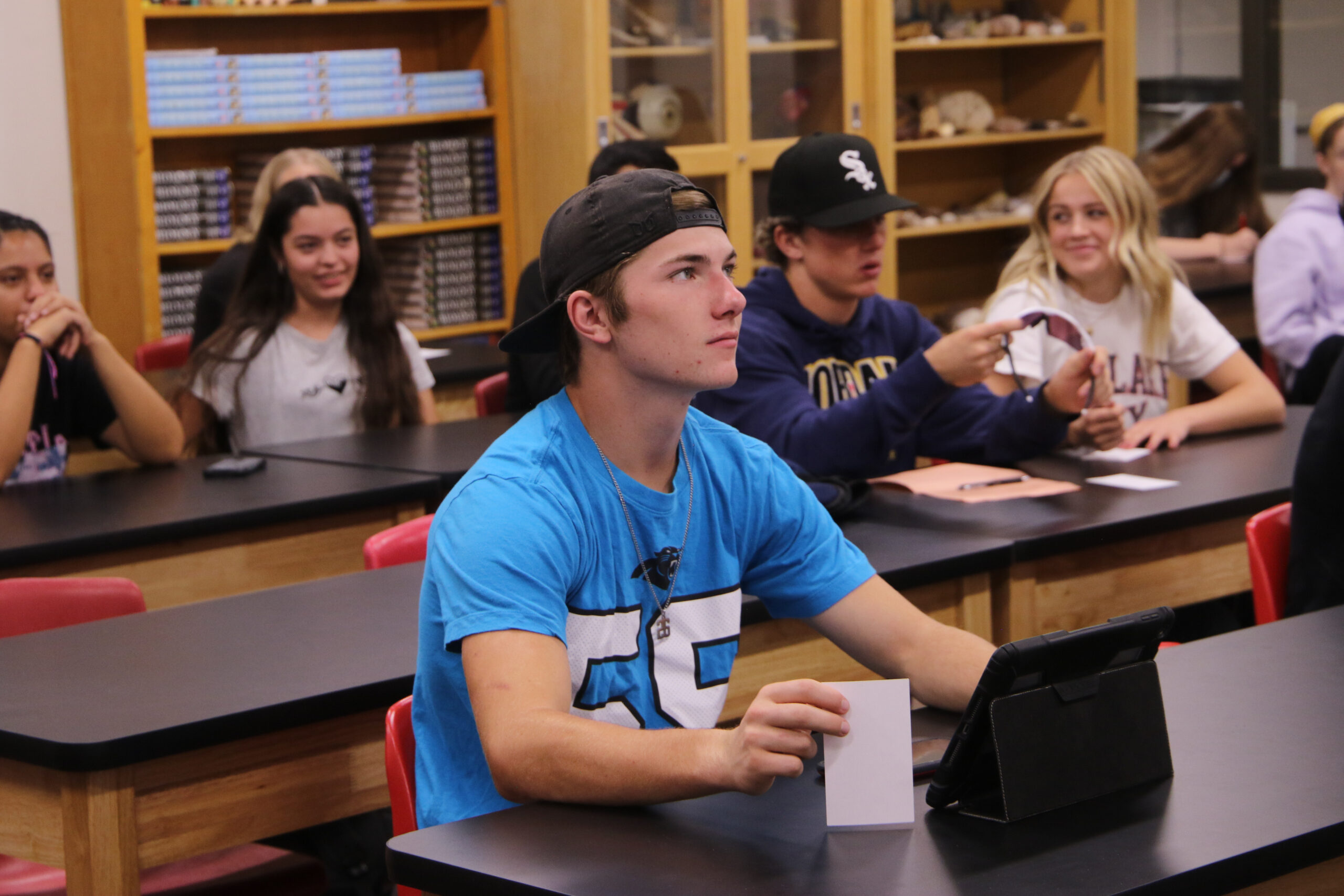by Mayzie Talbot
After experiencing suicidal thoughts and attempts at her own life, she changed the focus of her life and chose to educate people about the dangers of suicide instead. Taryn Hiatt, director of Utah and Nevada for the American Foundation for Suicide Prevention, shared her message of hope and taught important skills at NS.
Every year, NS has a suicide prevention assembly for the school and the community. This year Principal Nan Ault was approached by Hiatt to give the presentation.
The point of these assemblies is to help students and parents identify when someone is in trouble and then know how to respond.
“It’s important that we talk about suicide in a way that promotes help seeking and resources,” Hiatt said. “We want to encourage folks that if they’ve thought about it or they’re struggling with those thoughts that there’s help available.”
Hiatt believes that it is important for students to know that they aren’t alone.
“We make sure that students know that we have resources. They can talk to people or there’s the SafeUT app or the counselors,” said assistant principal Jeff Ericksen.
Each year, the assembly sparks a response from struggling students.
“Whenever we do this with kids and with parents, we always have responses. We had a response that afternoon on the day of the training,” Ault said.
The assembly this year was especially needed after several recent NS graduate suicides. Hiatt believes when a tragedy happens in a community, it’s important to recognize what happened and acknowledge peoples’ feelings. It’s a natural instinct for people to have thoughts regarding what they could have done and how it could have possibly been their fault.
“There’s an element sometimes of guilt that doesn’t need to exist, but it’s just part of our human nature,” Hiatt said.
Hiatt has seen the talk surrounding suicide change drastically the last few years. She said it used to be seen as a sin or a shameful and cowardly act. Now people are starting to understand that it’s an actual health issue and needs to be treated as such.
When someone is struggling, Hiatt said the best thing you can do for them is get to a mental health professional to get an assessment done. They can provide support and offer clarity during rough times.
“Getting the support and help that you need to get you through an emotional crisis is key,” Hiatt said. “You can always go to the emergency room to get an assessment or calling the national suicide prevention line and talking to a counselor for free.”
Hiatt said talking about suicide and getting the facts is especially important for teenagers because a lot of times they feel embarrassed or ashamed of the way they are feeling so they won’t talk to anyone about it.
“They don’t understand that what it is is a real legitimate illness inside of their mind, and sometimes maybe their parents dismiss it,” Hiatt said. “They don’t feel supported or maybe they’re unsure of what help looks like. It’s just like when we go to the doctor for a broken leg. We don’t walk on a broken leg just cause we’re afraid of what the cast might feel like.”
Peers can be the biggest allies for someone struggling with depression or thoughts of suicide. They see things that teachers can’t always and they can have a lasting impact.
“If you are recognizing somebody that’s struggling take the opportunity to reach out,” Hiatt said. “You don’t have to be the one to fix it, you don’t have to be the one to know what to do, just reach out and say, ‘Hey, I see you, are you ok?’”
Suicide is a serious problem, and even though the stigma around it is changing, it’s still important to be aware.
“We’re all responsible to take care of each other. We have to watch out for each other and we have to know those warning signs, and then we have to know what to do about it,” Ault said.



